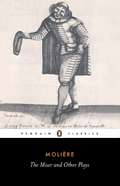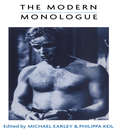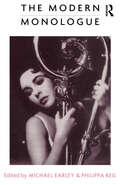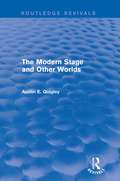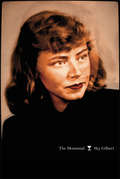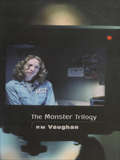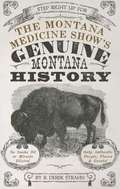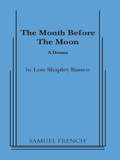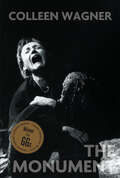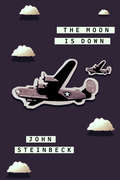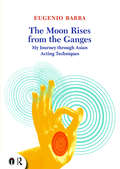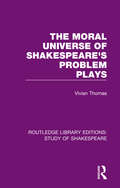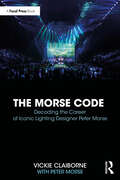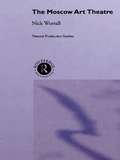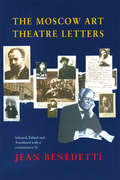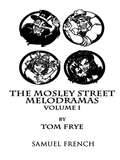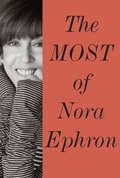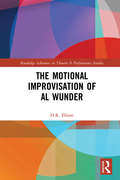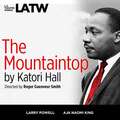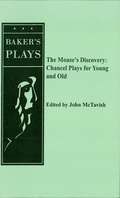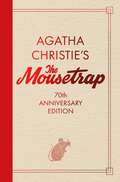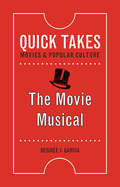- Table View
- List View
The Miser and Other Plays
by Jean-Baptiste MoliereMolière combined all the traditional elements of comedy - wit, slapstick, spectacle and satire - to create richly sophisticated and enduringly popular dramas. The Miser is the story of Harpagon, a mean-spirited old man who becomes obsessed with making money out of the marriage of his children, while The Hypochondriac, another study in obsession, is a brilliant satire on the medical profession. The School for Wives, in which an ageing domestic tyrant is foiled in his plans to marry his young ward, provoked such an outcry that Molière followed it with The School for Wives Criticized - a witty retort to those who disapproved of the play's supposed immorality. And while Don Juan is the darkest and most tragic of all the plays in this collection, it still mocks the soullessness of the skinflint with scathing irony.
The Mode in Costume: A Historical Survey With 202 Plates (Dover Fashion and Costumes Series)
by R. Turner WilcoxThe pursuit of style has prompted centuries of dramatic change in fashion—and author R. Turner Wilcox researched and documented it all in this completely comprehensive volume. <p><p>A lifelong student of history, costume, and design, she observed decades of fashion innovations from major cities all over the world and served as fashion editor of Women's Wear Daily from 1910 to 1915. Her remarkable Mode series is a definitive reference for anyone with a passion for fashion. From the togas of ancient Rome to the gorgeous gowns of Dior, this lavishly illustrated, thoroughly researched treasury examines men's, women's, and children's clothing — plus accessories — from 3000 B.C. to 1958. <p><p>Based on medals, coins, sculpture, and decorations of various periods, the images include ancient Egyptian tunics, Chinese silks, Greek sandals, Roman bridal gowns, Persian parasols and fans, Victorian top hats and cravats, Renaissance lace, Venetian breeches, crinolines and bustles, fedoras and homburgs, as well as perfumes, hairstyles, and handbags. <p><p>A gathering of some of the most distinctive and dramatic styles through the ages, The Mode in Costume is an essential handbook for illustrators, costume designers, and theater students — and compulsory reading for fashionistas.
The Modern Monologue: Men
by Michael Earley Philippa KeilThe Modern Monologue in two volumes, one for men and one for women, is an exciting selection of speeches drawn from the landmark plays of the 20th century. The great playwrights of the British, American and European theatre-- and the plays most constantly performed on stage throughout the world--are represented in this unique collection. Monologues of all types--both serious and comic, realistic and absurdist--provide a dynamic challenge for all actors: the student, the amateur and the professional. A fuller appreciation of each speech is enhanced by the editors' introduction and commentaries that set the plays and individual speeches in their dramatic and performance contexts.
The Modern Monologue: Women
by Michael Earley Philippa KeilFirst published in 1994. Routledge is an imprint of Taylor & Francis, an informa company.
The Modern Stage and Other Worlds (Routledge Revivals)
by Austin E. QuigleyModern plays are strikingly diverse and, as a result, any attempt to locate an underlying unity between them encounters difficulties: to focus on what they have in common is often to overlook what is of primary importance in particular plays; to focus on their differences is to note the novelty of the plays without increasing their accessibility. In this study, first published in 1985, Austin E. Quigley takes as his paradigm case the relationship between the world of the stage and the world of the audience, and explores various modes of communication between domains. He asks how changes in the structure of the drama relate to changes in the structure of the theatre, and changes in the role of the audience. Detailed interpretations of plays by Pinero, Ibsen, Strindberg, Brecht, Ionesco, Beckett and Pinter question principles about the modern theatre and establish links between drama structure and theatre structure, theme, and performance space.
The Mommiad
by Sky GilbertPoetic and heartfelt, The Mommiad chronicles the relationship between a mother and her son, the ups and downs they shared, and the toll that alcohol and dementia would eventually take on Patricia Tucker Gilbert's life. Intimate and affirming, Sky Gilbert confirms the bond he shared with his mother, both in his own voice and through the voice of his alter ego, Jane. The Mommiad is lyrical and tragic and true, an artist's self-reflection and an endeavour to turn one woman's life into an artistic experience.
The Monster Trilogy
by R. M. VaughanOgres, trolls, demons - monsters, like violence, are always represented as male. Not this time. Celebrated playwright RM Vaughan gives us, in three one-act monologues, three very monstrous women. 'In A Visitation by St Teresa of Avila upon Constable Margaret Chance,' we meet a middle-aged police officer whose world view is determined by her obsession with race, bloodlines and genetic determinism. 'The Susan Smith Tapes' (made into a film for CBC and Showcase by Jeremy Podeswa) shows the famous American who drowned her two young sons trying to recapture the public's attention by auditioning for talk shows. And 'Dead Teenagers' introduces us to a frustrated reverend unhealthily addicted to the spectacle of large funerals for murdered children.
The Montana Medicine Show's Genuine Montana History
by B. Derek StrahnThis book is a collection of episodes from the popular radio program, Montana Medicine Show by Derek Strahn, that originates at KGLT studios on the campus of Montana State University-Bozeman. Though the program strives to inform, its main objective is to entertain-to relate some interesting or quirky anecdote and provide an enjoyable or thought-provoking glimpse of Montana's past. Given the fleeting nature of radio and the need to make a quick impression, the 117 stories are packed with colorful quotations and vivid firsthand accounts. The lively style is fun to read, and the book adds interesting illustrations to every story. Floods, fires, earthquakes, and blizzards frequently take the stage. But at the center of it all are the people. Montana's medicine show is filled with a raucous cast of hucksters, risk-takers, reformers, warriors, and reprobates. Here one will find manly men and feisty women, tradition-clinging conservatives and reckless radicals. As the uncompromising journalist Joseph Kinsey Howard said, "Montana has lived the life of America, on a reduced scale and at breakneck speed. Its history has been bewilderingly condensed, a kaleidoscopic newsreel, unplotted and unplanned. . . " Enjoy some of the state's most extraordinary moments in The Montana Medicine Show's Genuine Montana History. Book jacket.
The Month Before the Moon
by Lois Shapley BassenDrama / 2 m., 6 f. / Interior / Meeting at their twentieth fifth Vassar reunion in 1994 are four women in their late forties: an African American United States senator from Texas, a farmer from New Hampshire, an East Side New York wife and a successful songwriter, also from New York City. Two of them are accompanied by their children, a son and daughter who plan to enter Vassar in the fall and are along for the pre frosh orientation. The other two characters are ghosts, one a former classmate and the other the farmer's father. Each of the women has a particular motive for attending this reunion, something each must complete. For one it is suicide, an act that interrupts the teenagers' love making and staggers the rest into actions they would not have otherwise taken and revelations they would not have otherwise divulged. By the final curtain a great deal is revealed about the last quarter of this century and the women who graduated from Vassar in June of 1969, the month before the first human walked on the moon.
The Monument
by Richard Rose Colleen WagnerStetko is the model boy next door and the son of middle-class parents, but when war arrives it forever changes his life. Although he does nothing more than follow his commanding officer's orders, when the war is over he stands accused of terrible crimes. A profoundly affecting two-person drama that reminds us of the faceless horror of war, and of the guilt which whole nations must carry on their shoulders. Wagner's play goes to the heart of man's inhumanity in war time.Winner of the 1996 Governor General's Literary Award for Drama
The Moon Is Down
by John SteinbeckIn this masterful story set in Norway during World War II, Steinbeck explores the effects of invasion on both the conquered and the conquerors. As he delves into the emotions of the German commander and the Norwegian traitor, and depicts the spirited patriotism of the Norwegian underground, Steinbeck uncovers profound, often unsettling truths about war—and about human nature. The Moon is Down had an extraordinary impact as Allied propaganda in Nazi-occupied Europe, and despite efforts to suppress it, the book was secretly translated into French, Norwegian, Danish, Dutch, Swedish, German, Italian, and Russian, and hundreds of thousands of copies circulated Europe, making it by far one of the most popular pieces of propaganda during the war. Few literary works of our time have demonstrated so triumphantly the power of ideas in the face of cold steel and brute force. Penguin Random House Canada is proud to bring you classic works of literature in e-book form, with the highest quality production values. Find more today and rediscover books you never knew you loved.
The Moon Rises from the Ganges: My journey through Asian acting techniques (Routledge Icarus)
by Eugenio BarbaA collection of texts by Eugenio Barba reconstructing the history of his relationships with the Asian classical theatres. Interweaving stories of journeys, meetings, anecdotes, reflections and technical descriptions, the author exposes the phases and changes in a passion that covers the fifty years of his professional trajectory. Little known or unpublished texts are included together with widely diffused articles which have become classics. The result is a book which examines in detail an important chapter of the dialogue between East and West in the theatre culture of the twentieth century.
The Moral Universe of Shakespeare's Problem Plays (Routledge Library Editions: Study of Shakespeare)
by Vivian ThomasWhat is it that makes Shakespeare’s problem plays problematic? Many critics have sought for the underlying vision or message of these puzzling and disturbing dramas. Originally published in 1987, the key to Viv Thomas’s new synthesis of the plays is the idea of fracture and dissolution in the universe. From the collapse of ‘degree’ in Troilus and Cressida to the corruption at the heart of innocence in Measure for Measure, to the puzzling status of virtue and valour in All’s Well, the most obvious feature of these plays in their capacity to prompt new questions. In a detailed discussion of each play in turn, the author traces the dominant themes that both distinguish and unite them, and provides numerous insights into the sources, background, texture and morality of the plays.
The Morse Code: Decoding the Career of Iconic Lighting Designer Peter Morse
by Vickie Claiborne Peter MorseThe Morse Code: Decoding the Career of Iconic Lighting Designer Peter Morse explores key developments and evolving techniques, processes, and technology within contemporary theatrical lighting design through the career and impact of US lighting designer Peter Morse.Peter Morse’s career as a lighting designer spans over 50 years. He has worked with most of entertainment’s biggest artists, including Michael Jackson, Barbra Streisand, Madonna, Prince, and many more. This book documents his firsthand perspective of how the entertainment industry has changed, and it features his unique perspective on how the evolution of the lighting industry resulted in an evolution of his design and practice. More than a simple biography, this book explores the history of contemporary lighting design through Peter’s eyes and experience, tracing the evolution of technology and trends, and how one designer’s creativity impacted an industry. Each chapter explores the work of a decade and is illustrated with personal interest stories from his collaborations with iconic artists and production photography.The Morse Code is a valuable resource for new and experienced lighting designers, students of lighting design, and those interested in the history of technical theatre.
The Moscow Art Theatre (Theatre Production Studies)
by Nick WorrallUnprecedented in its comprehensiveness, The Moscow Art Theatre fills a large gap in our knowledge of Stanislavsky and his theatre. Worrall focuses in particular detail on four of The Moscow Art Theatre's best-known productions: * Tolstoy's Tsar Fedor Ioannovich * Gorky's The Lower Depths * Chekov's The Cherry Orchard * Turgenev's A Month in the Country
The Moscow Art Theatre Letters
by Jean BenedettiMoscow Art Theatre Letters tells the real story of the Moscow Art Theatre, from its origin at the turn of the century through its first forty years. Jean Benedetti presents the historical record first-hand in this collection of the letters of the main protagonists. Many are available in English for the first time--all will come as a revelation to Western readers.
The Mosley Street Melodramas (Volume #1)
by Tom FryeThe fourth and final volume of our popular melodramas series includes four new works from Tom Frye. This melodrama has simple sets and various male and female roles.
The Most of Nora Ephron
by Nora EphronA whopping big celebration of the work of the late, great Nora Ephron, America&’s funniest—and most acute—writer, famous for her brilliant takes on life as we&’ve been living it these last forty years.Everything you could possibly want from Nora Ephron is here—from her writings on journalism, feminism, and being a woman (the notorious piece on being flat-chested, the clarion call of her commencement address at Wellesley) to her best-selling novel, Heartburn, written in the wake of her devastating divorce from Carl Bernstein; from her hilarious and touching screenplay for the movie When Harry Met Sally . . . (&“I&’ll have what she&’s having&”) to her recent play Lucky Guy (published here for the first time); from her ongoing love affair with food, recipes and all, to her extended takes on such controversial women as Lillian Hellman and Helen Gurley Brown; from her pithy blogs on politics to her moving meditations on aging (&“I Feel Bad About My Neck&”) and dying.Her superb writing, her unforgettable movies, her honesty and fearlessness, her nonpareil humor have made Nora Ephron an icon for America&’s women—and not a few of its men.
The Motional Improvisation of Al Wunder (Routledge Advances in Theatre & Performance Studies)
by H.R. ElliottThe Motional Improvisation of Al Wunder takes readers on a journey through the life history, creative genealogies and unique working processes of one of the master teachers of Euro-American postmodern movement-based improvisational performance who has, until now, received scant critical attention. The book offers a long overdue examination of the significant impact made by an important figure on grassroots movement-based improvisational performance in 1960s/1970s America and in Australia from the 1980s onwards. It revisits the work of groundbreaking New York choreographer Alwin Nikolais, with whom Wunder trained and for whom he later taught in the 1960s; covers collaborations with founders of ‘Action Theater’ Ruth Zaporah and ‘Motivity Aerial Dance’ Terry Sendgraff as part of the explosion of improvisation in San Francisco in the 1970s and tracks the consolidation of a unique pedagogy that would see hundreds of students learn how to map their performative creativity in Melbourne from the 1980s onwards. It conducts a fascinating investigation into the wellsprings of Wunder’s approach to improvised performance as an end in itself, covering teaching innovations such as his use of the Hum Drum, positive feedback, personal power sources and articulators. It includes valuable contributions from a number of ex-students and established Australian artists in dance, music and visual art who share the profound impact Wunder has made on their creative practices. This book will be a valuable resource to movement/dance improvisation students and teachers at undergraduate and postgraduate level and independent artists drawn to movement improvisation as performance.
The Mountaintop
by Katori HallOn April 4, 1968, Martin Luther King Jr. was assassinated outside of his room at the Lorraine Motel in Memphis. What happened inside room 306 on the evening of April 3 is the subject of Katori Hall's The Mountaintop. Hours after King's final speech, punctuated by his immortal line "I've been to the mountaintop", the celebrated reverend forms an unlikely friendship with a motel maid as they talk into the early hours of what will be his final day.
The Mouse's Discovery
by John MctavishA collection of holiday plays by John McTavish. Included in this collection are: Tomorrow We Go to Bethlehem -- A Christmas Play; A Word with You -- A Christmas Play; The Third Wish -- A Play for Christmas; The Mouse's Discovery; The Good Samaritan; and The Face of Jesus.
The Mousetrap: 70th Anniversary Edition
by Agatha Christie'Even more thrilling than the plot is the atmosphere of shuddering suspense . . . No one brews it better than Agatha Christie' Daily ExpressFor 70 years, Agatha Christie's The Mousetrap has kept millions of people, from every corner of the globe, on the edge of their seats, and it continues to be a sell-out hit of London theatre. This brand new edition of the world's longest-running play will contain a new introduction by Sophie Hannah, bestselling author of the authorised Agatha Christie Poirot continuation novels, as well as the official play script and a host of exclusive material from the show's archives. As news spreads of a murder in London, a group of seven strangers find themselves in a remote countryside guesthouse. When a police sergeant arrives, the guests discover - to their horror - that a killer is in their midst. One by one, the suspicious characters reveal their sordid pasts. Which one is the murderer? Who will be their next victim? And can you solve this world-famous mystery for yourself?This beautiful 70th anniversary edition will contain an introduction by Sophie Hannah, the official playscript, an exclusive interview with producer Adam Spiegel, a treasure trove of letters, speeches, photographs, and other fascinating insights into the making of this iconic play.
The Mousetrap: 70th Anniversary Edition
by Agatha Christie'Even more thrilling than the plot is the atmosphere of shuddering suspense . . . No one brews it better than Agatha Christie' Daily ExpressFor 70 years, Agatha Christie's The Mousetrap has kept millions of people, from every corner of the globe, on the edge of their seats, and it continues to be a sell-out hit of London theatre. This brand new edition of the world's longest-running play will contain a new introduction by Sophie Hannah, bestselling author of the authorised Agatha Christie Poirot continuation novels, as well as the official play script and a host of exclusive material from the show's archives. As news spreads of a murder in London, a group of seven strangers find themselves in a remote countryside guesthouse. When a police sergeant arrives, the guests discover - to their horror - that a killer is in their midst. One by one, the suspicious characters reveal their sordid pasts. Which one is the murderer? Who will be their next victim? And can you solve this world-famous mystery for yourself?This beautiful 70th anniversary edition will contain an introduction by Sophie Hannah, the official playscript, an exclusive interview with producer Adam Spiegel, a treasure trove of letters, speeches, photographs, and other fascinating insights into the making of this iconic play.
The Movie Musical (Quick Takes: Movies and Popular Culture)
by Desirée J. GarciaPutting Asian and European musicals into conversation with Hollywood classics like Singin’ in the Rain and La La Land, this study demonstrates the flexibility and durability of the genre. It explores how the movie musical mediates between nostalgia and technical innovation, while foregrounding the experiences of women, immigrants, and people of color.
